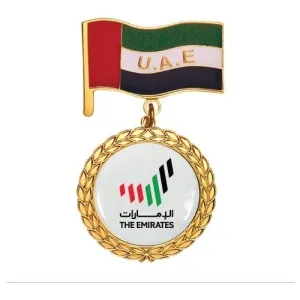The role of influencers in shaping consumer behavior
The role of influencers in shaping consumer behavior
In the contemporary digital age, influencers have emerged as powerful catalysts shaping consumer behavior across various industries. These individuals wield significant influence over their followers through their online presence, leveraging platforms such as social media to endorse products, services, and lifestyles. This essay delves into the role of influencers in shaping consumer behavior, examining their impact, strategies, and ethical considerations.
The Rise of Influencer Marketing
The proliferation of social media platforms has democratized content creation, allowing individuals to amass large followings based on their expertise, charisma, or relatability. Influencers, ranging from celebrities to niche content creators, leverage their online platforms to engage with audiences and promote products or brands. This form of marketing, known as influencer marketing, has gained traction due to its perceived authenticity and ability to reach targeted demographics.
Influencing Consumer Preferences
Influencers wield considerable influence over consumer preferences by leveraging their credibility, authenticity, and relatability. Through curated content, product endorsements, and personal narratives, influencers shape perceptions, create desire, and drive purchasing decisions among their followers. Their ability to seamlessly integrate promotional content into their everyday lives enhances the appeal and perceived value of endorsed products or services.
Building Trust and Credibility
Central to the effectiveness of influencer marketing is the establishment of trust and credibility between influencers and their audience. Influencers often cultivate authentic relationships with their followers, engaging in transparent communication and providing genuine recommendations. This fosters a sense of trust and authenticity, enhancing the persuasiveness of their endorsements and influencing consumer behavior.
Targeted Marketing and Audience Segmentation
Influencers possess the ability to target specific demographics and niche audiences, enabling brands to tailor their marketing efforts and reach consumers with precision. Micro-influencers, in particular, specialize in niche interests and communities, offering brands opportunities for hyper-targeted marketing and audience segmentation. This personalized approach enhances the relevance and effectiveness of promotional content, driving engagement and conversion rates.
Challenges and Ethical Considerations
Despite their effectiveness, influencer marketing poses challenges and ethical considerations. Issues such as authenticity, transparency, and disclosure of sponsored content have sparked debates surrounding influencer credibility and consumer trust. Instances of deceptive practices, including undisclosed sponsorships or fake endorsements, undermine the integrity of influencer marketing and erode consumer confidence.
Navigating the Regulatory Landscape
Regulatory bodies and governing agencies have responded to the proliferation of influencer marketing by introducing guidelines and regulations aimed at promoting transparency and consumer protection. Requirements for disclosure of sponsored content, adherence to truth-in-advertising principles, and enforcement of fair marketing practices seek to mitigate deceptive tactics and ensure transparency in influencer-brand collaborations.
The Future of Influencer Marketing
As influencer marketing continues to evolve, brands and marketers must adapt to changing consumer preferences and regulatory landscapes. The rise of authenticity, transparency, and ethical standards underscores the importance of cultivating genuine relationships with influencers and prioritizing consumer trust. Strategic collaborations, data-driven insights, and innovative approaches will shape the future of influencer marketing, offering brands opportunities to engage with audiences in meaningful and impactful ways.
Conclusion
Influencers play a pivotal role in shaping consumer behavior, leveraging their online presence and influence to endorse products, services, and lifestyles. Through targeted marketing, authenticity, and credibility, influencers engage with audiences, influence preferences, and drive purchasing decisions. However, ethical considerations and regulatory challenges necessitate transparency, integrity, and adherence to best practices in influencer marketing. By navigating these complexities and prioritizing consumer trust, brands can harness the power of influencers to create meaningful connections and drive business success in the digital age.
Spotlight on Trending Promo Gear
Browse the most popular and trending Corporate Gifts
Promotional Sports Water Bottles
Promotional Sports Water Bottles
Promotional Sports Water Bottles
Back To School Gifts
Promotional Sports Water Bottles
Promotional Sports Water Bottles
Promotional Sports Water Bottles
Eco Friendly Bottles




















